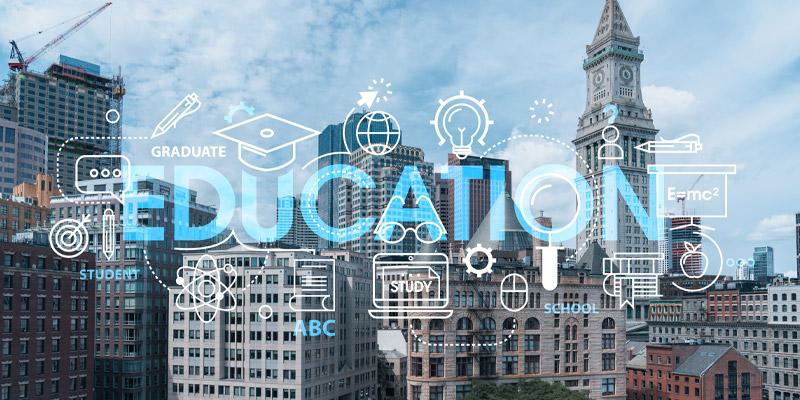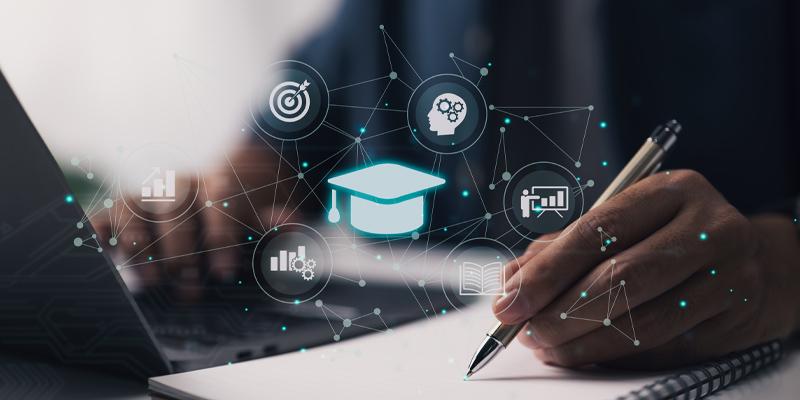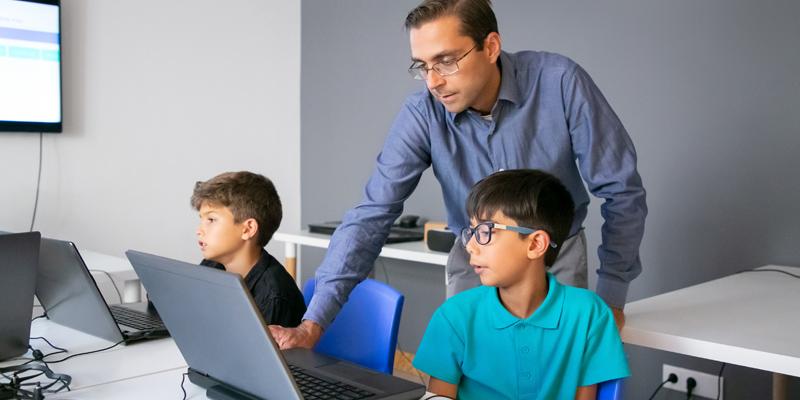Technology has revolutionized every aspect of human life, including the education sector. With the rise of digital transformation, traditional classroom learning has given way to online and digital learning. In India, where education is highly valued, the integration of technology in the education sector is gaining momentum. This article delves into the current trends, challenges, and future of education technologies in India.
Education Technologies in India

Education is a fundamental aspect of a country’s development, and the education system in India has been undergoing significant changes. The traditional classroom setup is slowly being replaced by smart classrooms, e-learning, and online learning platforms. As we move towards a more digital world, education technologies have become the new norm. This article aims to explore the various education technologies that are transforming the education system in India and the challenges they face in their implementation.
The Current Landscape of Education Technologies in India

Smart Classrooms
The use of smart classrooms has become increasingly popular in India. It is a technology-enabled classroom that uses audio-visual aids such as projectors, interactive whiteboards, and tablets. Smart classrooms offer a personalized learning experience that enhances student engagement and improves the quality of education.
Online Learning Platforms
E-learning Tools
Hybrid Teaching
EdTech Startups
The Challenges Faced by Education Technologies in India

This section will highlight the challenges faced by education technologies in India. It will cover issues such as the digital divide, lack of infrastructure, and resistance to change.
Digital Divide
The digital divide in India is a significant challenge in the implementation of educational technologies. There is a significant gap between rural and urban areas in terms of access to technology. Many students in rural areas do not have access to the internet or digital devices, making it challenging to implement online learning.
Lack of Infrastructure
Resistance to Change
Resistance to change is a significant challenge in the implementation of educational technologies. Many educators are resistant to the idea of technology-enabled learning and prefer traditional classroom learning. This resistance hampers the adoption of technology in the education sector.
The Future of Education Technologies in India

AI and Machine Learning
Artificial Intelligence (AI) and Machine Learning (ML) have the potential to revolutionize the education sector in India. Educational institutions can use these technologies to provide personalized learning experiences, assess student performance, and identify learning gaps. AI and ML can also provide real-time feedback to students, which can help improve student engagement and motivation.
Virtual and Augmented Reality
Gamification
Gamification is the use of game elements in non-game contexts, such as education. This approach can be used to make learning more engaging and fun. Gamification can be used to incentivize learning, provide rewards and recognition, and create healthy competition among students.
Personalized Learning
Personalized learning is an approach that tailors the learning experience to the needs of individual learners. The use of technology-enabled learning solutions such as AI, ML, and e-learning tools can achieve personalized learning and provide customized learning experiences that cater to the learning style, pace, and interests of students.
Smart Classroom
Smart classrooms are the future of classroom learning in India. They offer a personalized and engaging learning experience that enhances student engagement and improves the quality of education. Smart classroom can be equipped with cutting-edge technology, such as interactive whiteboards, projectors, and tablets.
Conclusion
In conclusion, education technologies are transforming the education sector in India. The integration of technology in the education sector has the potential to provide a personalized and engaging learning experience that enhances student engagement and improves the quality of education. However, the adoption of education technologies in India faces challenges such as the digital divide, lack of infrastructure, and resistance to change. The future of education technologies in India is bright, with the potential for AI, ML, VR/AR, gamification, personalized learning, and smart classrooms to revolutionize the education sector.
Frequently asked questions
Online learning platforms offer learners the flexibility to learn at their own pace and time. These platforms provide access to a vast range of courses, materials, and resources. These are easily customizable to meet the needs of individual learners. Online learning platforms also allow students to collaborate and communicate with peers and teachers from anywhere in the world.
Schools and universities in India are using EdTech to supplement traditional teaching methods, provide personalized learning experiences, and improve student engagement and outcomes.
The education system in India needs to change to keep up with the changing demands of the job market and to equip students with the necessary skills to succeed in the modern world. The current education system in India is outdated and lacks innovation, which hinders the overall development of the students. Thus, incorporating modern technology and innovative teaching methods can bring about the necessary change in the education system.
The challenges faced by education technologies in India include the digital divide, lack of infrastructure, and resistance to change. Many students in India do not have access to devices or internet connectivity, which limits their ability to participate in online learning. Additionally, many schools and institutions lack the infrastructure and resources to implement educational technologies effectively. Resistance to change from teachers, parents, and other stakeholders can also hinder the adoption of new technologies in the classroom.
Education technologies have the potential to improve the quality of education in India by making learning more accessible, engaging, and effective. Online learning platforms and personalized learning tools can help bridge the gap between students who have access to quality education and those who do not. Smart classroom can also enhance the learning experience by providing interactive and immersive environments that foster collaboration and creativity.
EdTech can also help educators to personalize the learning experience for each student and track their progress more efficiently. Additionally, it can facilitate communication and collaboration between teachers and students, as well as with other educators. By incorporating EdTech into their teaching, educators can enhance their own skills and stay up-to-date with the latest teaching methodologies and trends.
Yes, the education system in India is already undergoing significant changes with the integration of technology and the adoption of new teaching methods. However, the pace of change varies across different regions and institutions. The increasing use of technology, personalized learning, and hybrid teaching models are likely to shape the future of education in India.
To overcome the challenges of implementing education technologies in India, schools and institutions must address the digital divide by providing students with devices and internet connectivity. They must also invest in the infrastructure and resources necessary to implement educational technologies effectively. It is also essential to engage with teachers, parents, and other stakeholders to build support for education technologies and provide training and support to ensure successful implementation.
Personalized learning can benefit students in India by providing a customized learning experience that meets their individual needs and learning preferences. This approach can help students who may struggle in traditional classroom settings by providing targeted support and adaptive learning tools. Personalized learning can also help high-achieving students reach their full potential by providing challenging and engaging learning opportunities.
Education technologies will increasingly shape the future of education in India. With more investment in digital infrastructure and connectivity, online learning platforms, personalized learning tools, and smart classrooms will become more widely adopted. These technologies can transform the way students learn and interact, making education more accessible and effective. They can also help bridge the digital divide and create new job opportunities in fields such as software development, content creation, and online teaching.
Some examples of successful implementation of education technologies in India include mobile learning apps, virtual and augmented reality in classrooms, and online learning platforms such as Coursera, Udemy, and Byju's. These technologies offer a range of flexible and personalized learning options to students, making learning more accessible and engaging.
AI has the potential to revolutionize education in India by providing personalized learning experiences that cater to the learning style, pace, and interests of students. It can also help automate administrative tasks, such as grading and assessment, and analyze student data to improve learning outcomes.
Individuals can contribute to the change in the education system in India by advocating for reform, supporting innovative initiatives, and being open to new approaches to teaching and learning. They can also volunteer their time and expertise to mentor and support students or donate resources to schools and educational organizations.
Education technologies can provide access to education to those in remote or rural areas, as well as those with disabilities, by offering online learning platforms and tools such as video conferencing and online assessments.
We expect that education technologies will create new job opportunities in fields such as software development, content creation, and online teaching. Additionally, they can help individuals acquire new skills and stay competitive in the job market.
The government, educational institutions, educators, parents, and students all have a role to play in bringing about change in the education system in India.
Some challenges faced by EdTech in India include the digital divide, lack of infrastructure, and resistance to change. Additionally, there is a need for effective teacher training and support to ensure the successful integration of technology into education.
